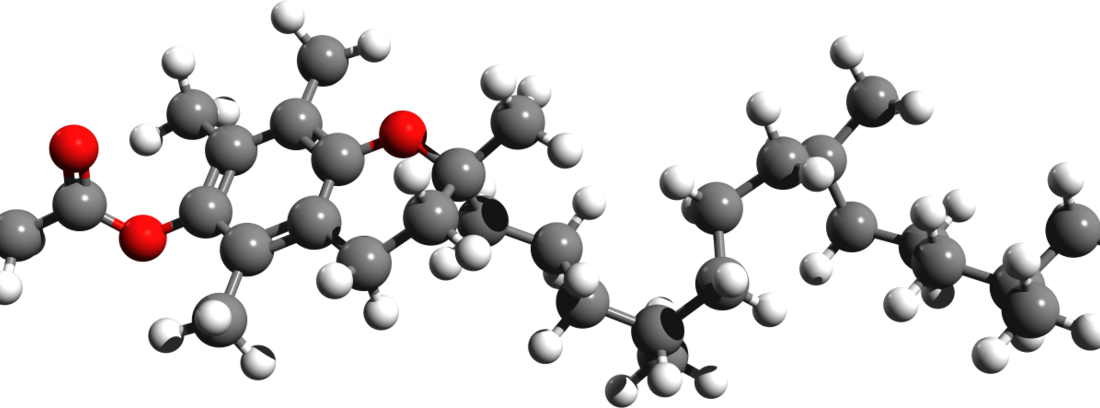What is D-Alpha Tocopheryl Acetate?
D-Alpha Tocopheryl Acetate is a natural form of Vitamin E, recognized for its powerful antioxidant properties. Chemically, it is a tocopherol that has been esterified with acetic acid, resulting in a stable compound that is easily absorbed by the body. This unique composition allows D-Alpha Tocopheryl Acetate to retain its efficacy as a nutrient, offering various health benefits that are particularly prominent in promoting healthy vision.
Sources of D-Alpha Tocopheryl Acetate primarily include vegetable oils, nuts, and green leafy vegetables. Commonly used in dietary supplements and skincare products, this compound is lauded for its ability to enhance skin hydration and protect against oxidative stress. One of its primary roles in the body involves acting as a significant antioxidant, which helps neutralize harmful free radicals that can cause cellular damage.
In relation to eye health, D-Alpha Tocopheryl Acetate plays a crucial role by supporting the integrity of cell membranes and protecting ocular tissues. Studies indicate that adequate levels of Vitamin E are associated with a reduced risk of age-related macular degeneration (AMD) and cataracts, two conditions that can severely affect vision. The antioxidant action of D-Alpha Tocopheryl Acetate helps shield the eyes from oxidative damage caused by environmental stressors such as UV rays and pollution.
Moreover, this compound is often included in topical formulations not only for its moisturizing properties but also due to its ability to improve skin elasticity and tone. In such products, D-Alpha Tocopheryl Acetate helps enhance the overall appearance of skin while simultaneously providing protective benefits. As a versatile ingredient, its integration into both supplements and skincare highlights the vital role of D-Alpha Tocopheryl Acetate in promoting overall health and well-being.
How D-Alpha Tocopheryl Acetate Supports Vision Health
D-Alpha Tocopheryl Acetate, a potent form of vitamin E, has garnered attention for its significant role in promoting vision health. As an antioxidant, it provides essential protection against oxidative stress, which is one of the primary contributors to vision-related disorders. The eyes are particularly susceptible to damage from free radicals, especially given their high metabolic activity and exposure to light. By neutralizing these harmful molecules, D-Alpha Tocopheryl Acetate supports the health of retinal cells, thereby contributing to improved visual clarity and overall eye function.
Research indicates that D-Alpha Tocopheryl Acetate may play a vital role in preventing age-related macular degeneration (AMD), a leading cause of vision loss in older adults. AMD is characterized by the deterioration of the macula, the part of the retina responsible for sharp central vision. The antioxidant properties of D-Alpha Tocopheryl Acetate help protect retinal tissue from oxidative damage, potentially slowing the progression of AMD. Likewise, studies suggest that a higher intake of this vitamin E form can correlate positively with a reduced risk of developing cataracts, enabling clearer eyesight as individuals age.
Recent findings have further underscored the importance of D-Alpha Tocopheryl Acetate in enhancing visual acuity. Clinical trials have shown that supplementation with this tocopherol can lead to improvements in visual performance, particularly in low-light conditions. Additionally, the synergy between D-Alpha Tocopheryl Acetate and other vitamins and minerals in supporting eye health cannot be overlooked. This collective balance affords holistic protection against various ocular conditions, thus reinforcing the critical importance of ensuring adequate intake of this essential nutrient for optimal vision health.
Incorporating D-Alpha Tocopheryl Acetate into Your Diet
Integrating D-Alpha Tocopheryl Acetate, a form of Vitamin E, into your daily nutrition can significantly contribute to eye health and overall wellness. It is essential to focus not only on the quantity consumed but also on the quality of food sources, as this can enhance the intake of this vital nutrient. Foods rich in Vitamin E include nuts, seeds, and green leafy vegetables. For example, almonds, sunflower seeds, and spinach are excellent sources that can be easily incorporated into meals and snacks.
Additionally, certain oils, such as sunflower oil and olive oil, contain considerable amounts of D-Alpha Tocopheryl Acetate. Using these oils in cooking or as dressings can help elevate your dietary intake of this antioxidant. Aside from natural food sources, supplementation options, such as Vitamin E capsules, can also be considered for individuals unable to meet their nutritional needs through diet alone. Always consult with a healthcare professional to determine the appropriate dosage, as the recommended daily allowance for Vitamin E is typically around 15 mg but can vary based on individual health factors.
When incorporating D-Alpha Tocopheryl Acetate into your diet, it is vital to maintain a balanced diet that supports not just eye health but overall well-being. This includes consuming a variety of fruits, vegetables, whole grains, and lean proteins. Staying hydrated and managing lifestyle factors, such as screen time, can also positively impact eye health. Additionally, while D-Alpha Tocopheryl Acetate is generally considered safe, it is important to monitor intake from all sources, especially if taking supplements, to avoid excessive consumption.
In conclusion, by focusing on food sources rich in Vitamin E and considering supplementation under guidance, individuals can effectively incorporate D-Alpha Tocopheryl Acetate into their diet to promote better eye health and well-being.

Conclusion: The Path to Healthier Eyes with D-Alpha Tocopheryl Acetate
In examining the myriad health benefits of D-Alpha Tocopheryl Acetate, it is evident that this form of Vitamin E plays a crucial role in maintaining optimal vision health. Its potent antioxidant properties help combat oxidative stress, which can contribute to the progression of various eye disorders, including age-related macular degeneration and cataracts. By neutralizing harmful free radicals, D-Alpha Tocopheryl Acetate supports cellular health within the eyes, promoting overall clarity of vision.
Furthermore, the inclusion of D-Alpha Tocopheryl Acetate in one’s nutrition can enhance blood circulation to the retina. This improved blood flow ensures that vital nutrients reach ocular tissues more efficiently, which is essential for sustaining eye function. The supportive effects of this nutrient extend beyond vision; they contribute to the maintenance of overall eye comfort and health, helping to alleviate symptoms associated with dry eyes and visual fatigue.
Incorporating D-Alpha Tocopheryl Acetate-rich foods into the diet, such as nuts, seeds, and leafy greens, represents a proactive approach toward eye health. Beyond dietary adjustments, adopting a healthy lifestyle, including regular eye check-ups and protection against UV rays, further fortifies the benefits provided by this valuable nutrient. Through informed choices and awareness of eye health, individuals can significantly enhance their visual clarity and prevent potential complications.
Ultimately, prioritizing D-Alpha Tocopheryl Acetate within your dietary regimen is a step toward promoting better eye health. The synergy between this nutrient and a healthy lifestyle can lead to a clearer vision and contribute to long-term ocular wellness. It is vital for individuals to recognize the power of their dietary choices in maintaining optimal vision health and to embrace practices that foster not just clearer vision, but overall well-being.

